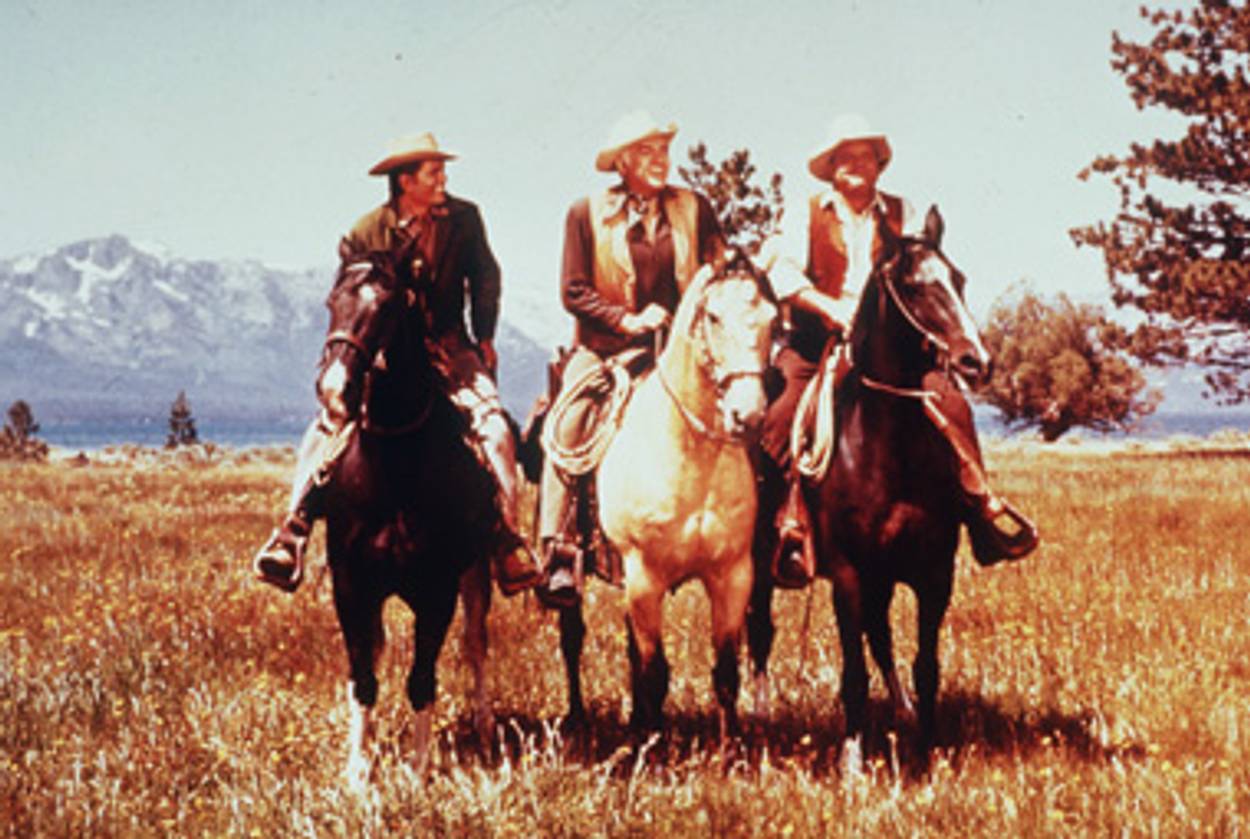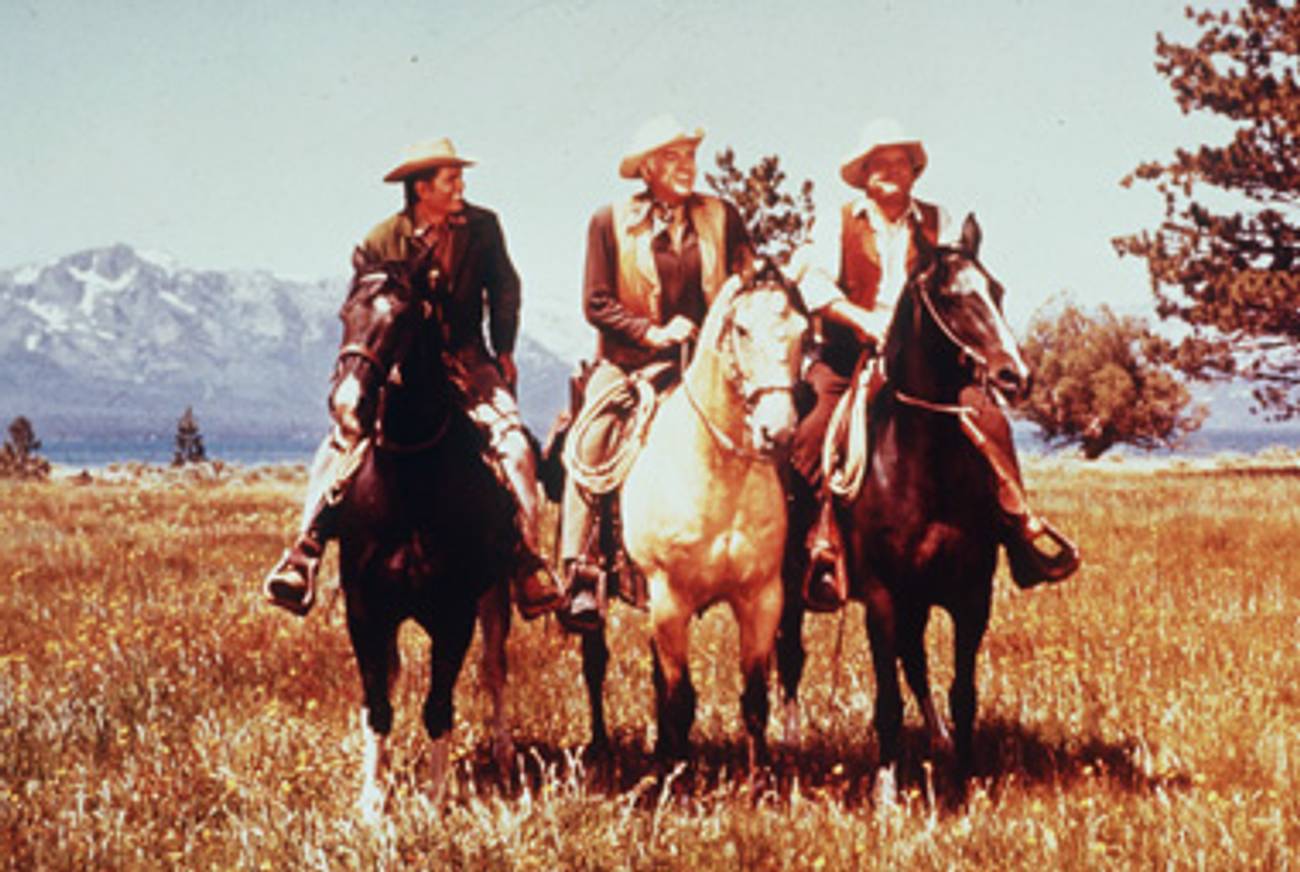Heym on the Range
Bonanza creator David Dortort, who died in September, drew inspiration from his family’s immigrant story




Some years ago, when I first visited Sikluv Mlyn, a Wild West theme park in the Czech Republic, I was startled by the music piped in to the lobby of my hotel. It was the unmistakable theme song from the iconic TV show Bonanza–sung in Czech.
Bonanza, which ran from 1959 to 1973, recounted the adventures of the tight-knit Cartwright clan—the patriarch Ben, his three sons Adam, Hoss, and Little Joe—and the goings-on at their sprawling Ponderosa ranch. Syndicated to dozens of countries and dubbed into languages ranging from German to Japanese, it was one of the most popular and widely watched television shows of all time and has had a tremendous impact in honing the image of the American West around the world.
But few viewers realize how deeply rooted the show was in, well, Yiddishkeit (and not just because two of the stars—Lorne Greene as Ben and Michael Landon as Little Joe—were Jewish).
Bonanza was the brainchild of David Dortort, a pioneering television writer and producer who died in September at the age of 93. The Brooklyn-born son of Eastern European Jewish immigrants, Dortort had a lifelong commitment to Jewish causes; among other things, he and his wife Rose, who died in 2007, endowed cultural programs at the American Jewish University and Hillel at UCLA.
I discussed the Jewish underpinnings of Bonanza with Dortort during a lengthy interview at his home in Los Angeles in December 2004, as part of my ongoing research on the American West in the European imagination.
Bonanza’s story lines, he told me, centered on relationships rather than good guy-bad guy gunplay and stressed the values of love, respect, and family ties. He had employed these values, he said, to create a mythic world along the lines of the Arthurian legends, with the Ponderosa a sort of American Camelot and Ben Cartwright a King Arthur figure.
He named the Cartwright patriarch Ben after his own father, a yeshiva bokher who immigrated to the United States at 15 and became an insurance broker in Brooklyn. It wasn’t just a name that the two shared. “Essentially the values that I put into Bonanza are Jewish values that I learned in my home, from my father,” he told me. “One of the great things about the United States is that it’s probably the only country in the history of the world that can be described as a Judaic-Christian civilization. Where else did the Jewish people have the freedom they have in this country and enjoy the opportunities?”
Toward the end of our talk, Dortort shifted the conversation away from Bonanza. He told me a family story that shed light on how his own relationship to myth—and to the West—may have been shaped in part by the exploits of his Uncle Harry, a ne’er-do-well in the Old Country who wound up fighting alongside Pancho Villa in Mexico and battling anti-Semites on a California ranch.
In Dortort’s telling, Harry, his father’s younger brother, left Galicia in about 1916; he made his way to Hamburg and got a job on a ship. Soon, Dortort said, “he finds himself off the coast of Mexico and at a port called Tampico, on the Caribbean, and he hears about a fantastic guy in the interior, deep in the Sierra Madre, called Pancho Villa.”
Harry “jumps ship and makes his way into the Sierra Madre somehow to join Pancho Villa. He fights with Villa against the government of Mexico, and they became very close.” Harry, Dortort said, “was a tough little character. He was known as Pancho Villa’s Jew.”
According to Dortort, Harry was with Pancho Villa in March 1916 when Villa carried out a bloody raid on a U.S. Army garrison at Columbus, New Mexico. Soon after, Harry followed Villa’s advice and fled to Texas—specifically to San Antonio, where there was a Jewish community. There, Dortort recounted, Harry spied a woman on the porch of a house, brushing her long, black hair. “He knows this is a Jewish section of town, so he calls up to her in Yiddish, ‘Are you a Jew?’ And she looks down and says, ‘Yes, but who are you and what do you want to know for?’ He looks up and says, ‘Do you want to get married?’ And she hesitated a moment and said, ‘OK!’ ”
Harry and his bride headed west to California, where they operated a citrus ranch near Pomona. By 1920 or 1921, Harry had become so successful that he arranged for his brother Ben to bring his family out to California from Brooklyn.
Dortort was only 4 or 5 years old. “It was beautiful,” he recalled. “No smog in those days, the mountains were clear, and there was snow on them; southern California was like paradise.”
Nearly 40 years later, he created Bonanza.
Ruth Ellen Gruber writes frequently about Jewish cultural and heritage issues and coordinates the web site Jewish Heritage Europe. Her Twitter feed is @ruthellengruber.
Ruth Ellen Gruber writes frequently about Jewish cultural and heritage issues and coordinates the web site Jewish Heritage Europe. Her Twitter feed is @ruthellengruber.